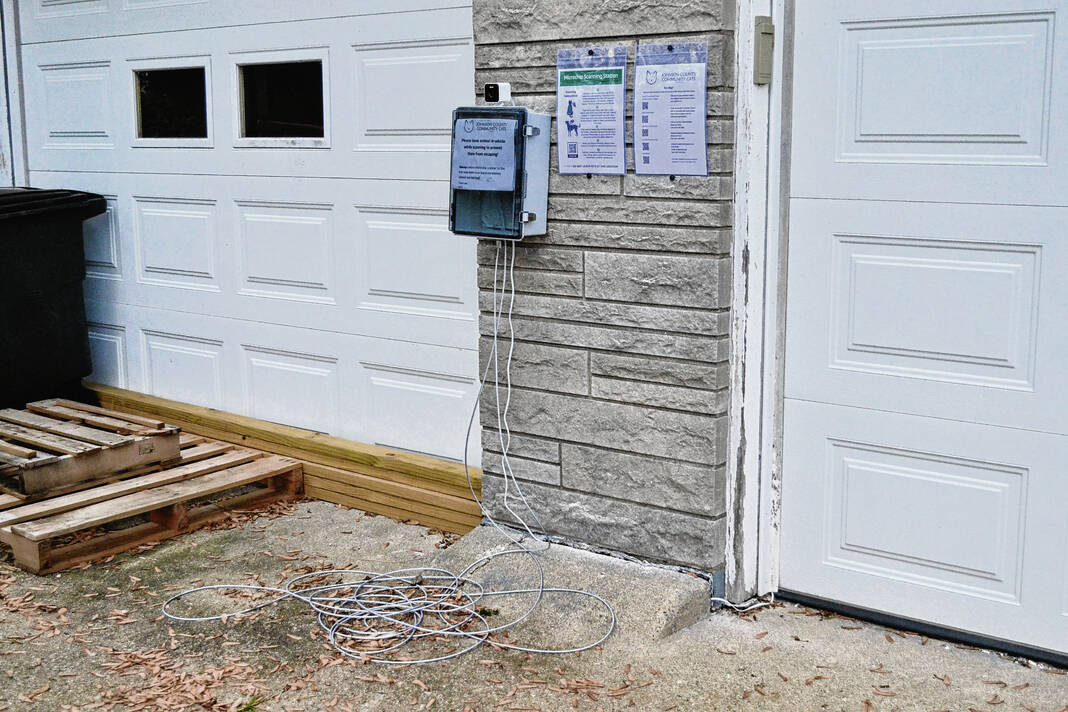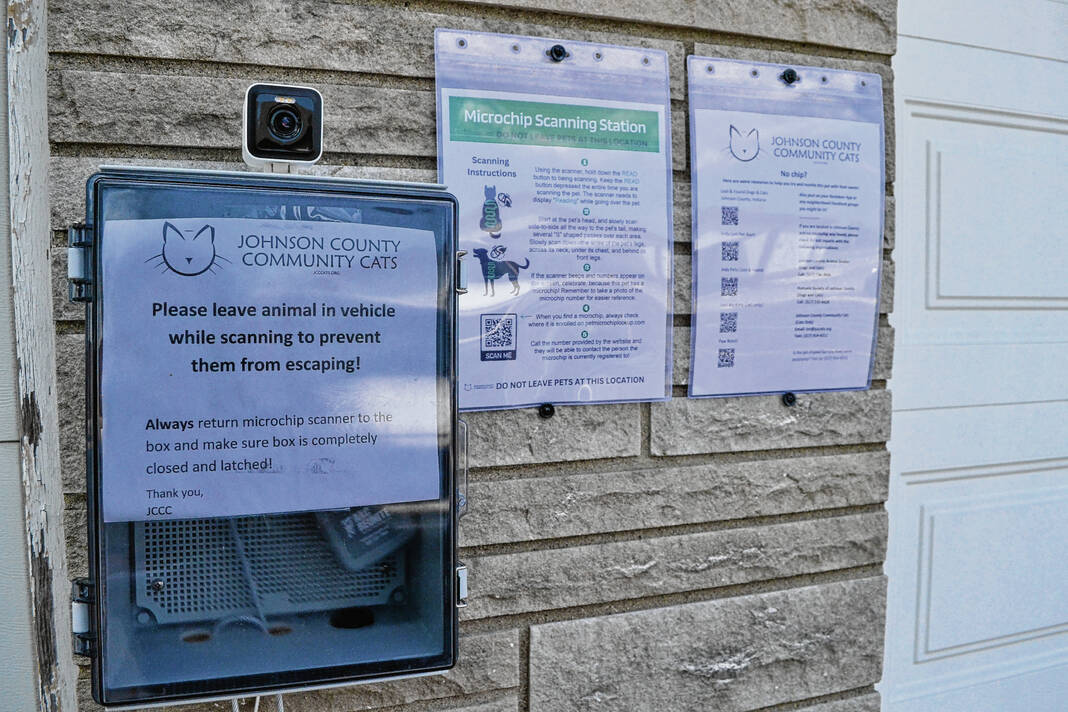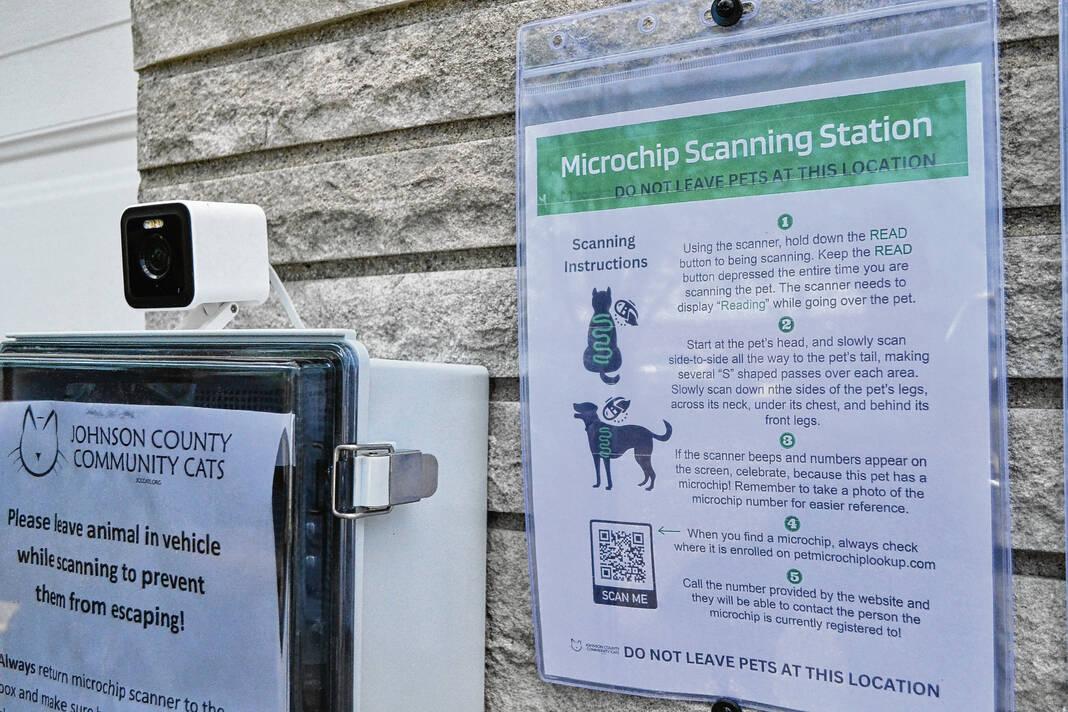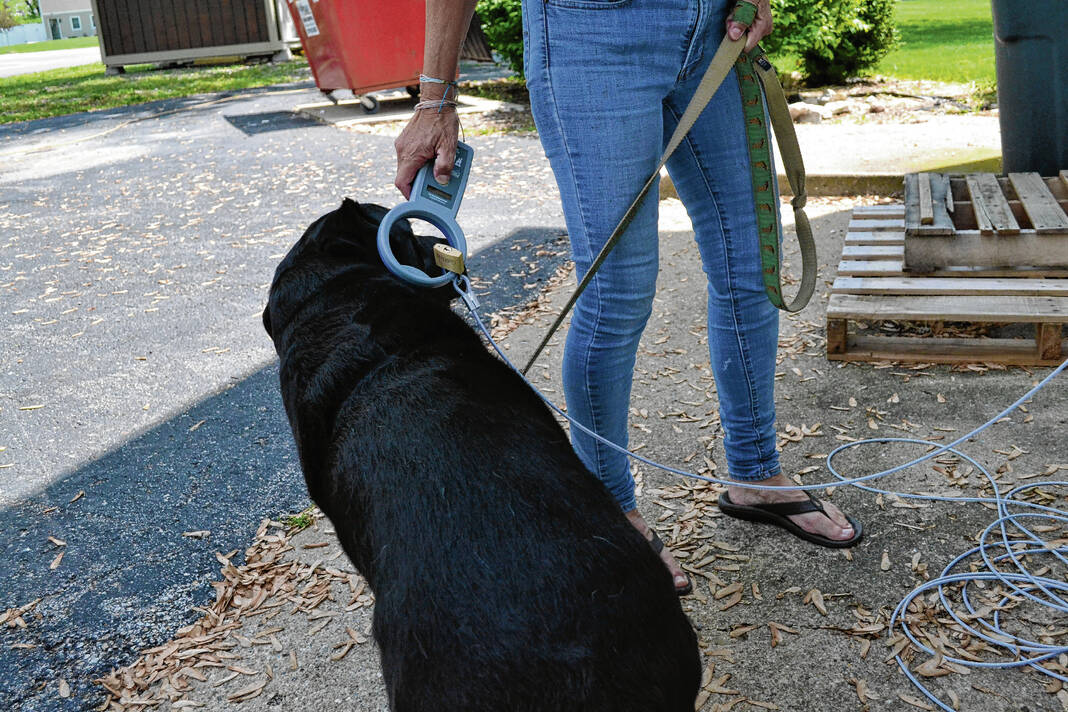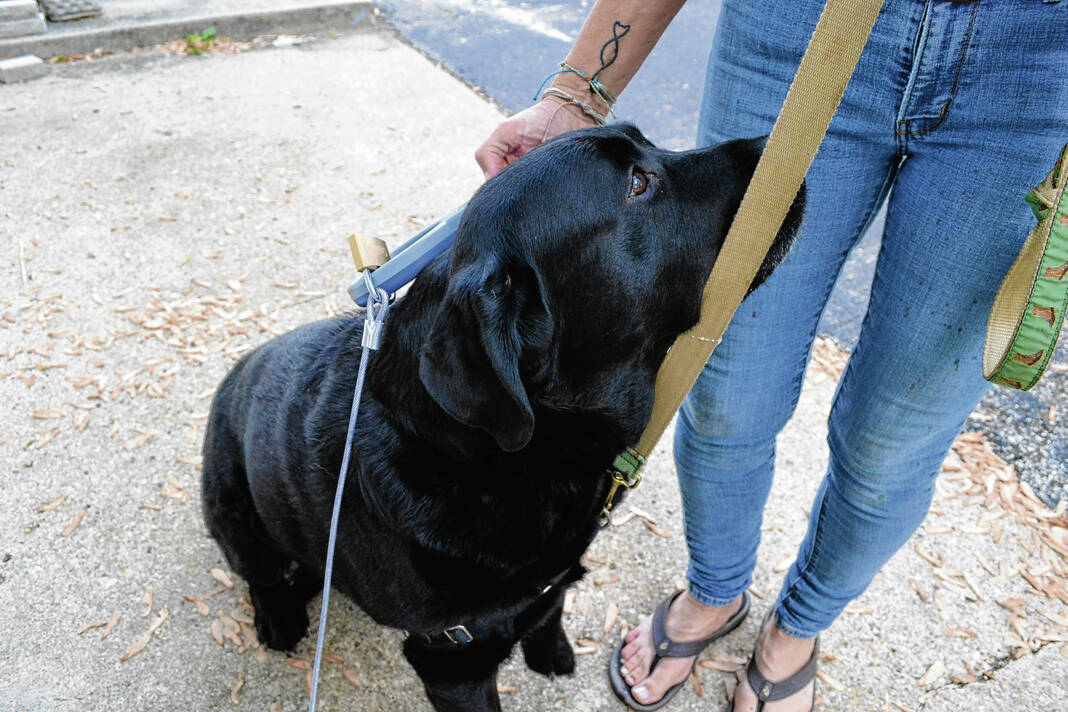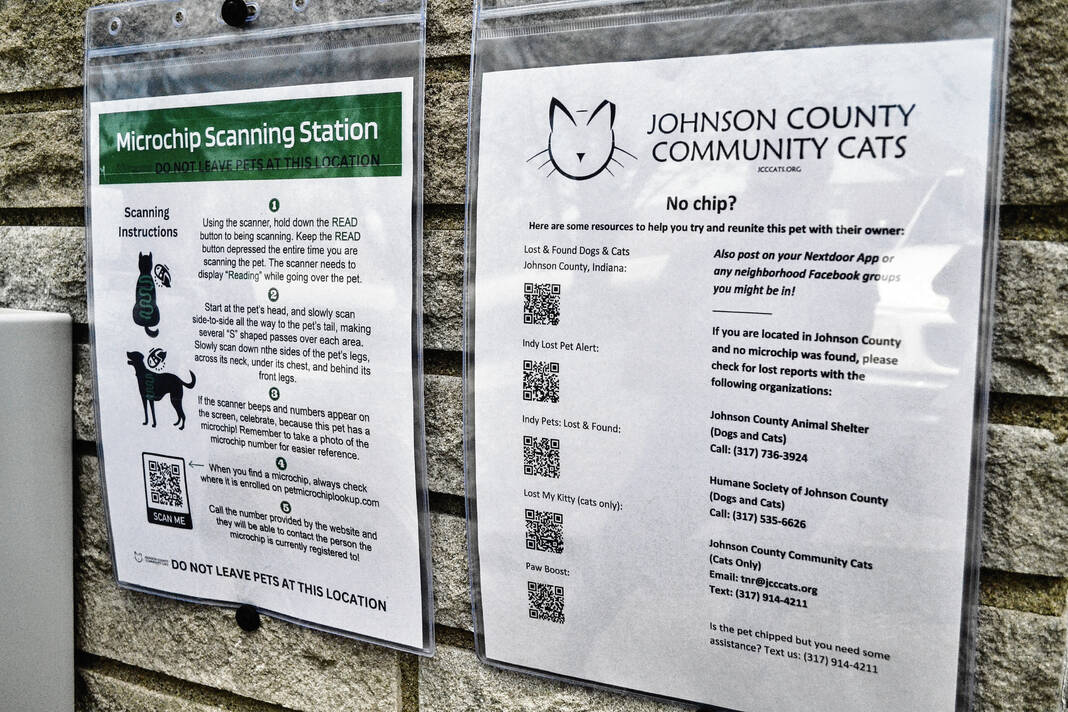People now have a way to check pet microchips 24/7 in Johnson County.
A local cat rescue nonprofit, Johnson County Community Cats, has installed a microchip reader on the outside of their Bargersville office, 4247 N. State Road 135.
Installing an outdoor station breaks down a common barrier to reuniting lost pets with their owners. Typically, people have to keep a lost pet in their home until they can reach a veterinarian’s office during business hours to read a microchip. With this station, pets in Johnson County can be reunited with their owners more quickly, said Reagan Lambert, director of Johnson County Community Cats.
“One of the biggest things is on lost pet pages, everyone asks people to scan it for a chip. The thing about that is you have to go to a vet or a shelter,” Lambert said. “Our big thing is to keep animals out of shelters. So, if we give that power and responsibility to the public, then they’re more inclined to come scan it. They’re not going to leave it behind and they’re going to try to find the owner.”
Lambert was introduced to the idea of a 24-hour-a-day public access microchip reader after seeing posts about it from the Kent County Animal Shelter in Michigan. She found a system to install at their Bargersville office and it has been up and running for a couple of weeks.
Word has spread about the microchip reader, and now a donor has pledged money to install a second unit in Johnson County. Lambert is still looking for a place to host the reader, preferably in Greenwood to make it accessible to a large number of people, she said.
The microchip reader is a wand-like device that is tethered to the building to prevent theft. The reader is kept in a case to keep it out of the elements. There are instructions on how to use the reader posted next to it, as well as resources to reunite lost pets with their owners in the event the pet does not have a microchip.
Using the microchip reader is simple. Users just have to press a button and wave the reader above the pet’s body to find the microchip, which is commonly implanted between a cat or dog’s shoulder blades. If a chip isn’t found in that area, Lambert advises a full body scan, as microchips can sometimes migrate to other areas of a pet’s body.
If a pet has a microchip, the chip number will be displayed on the screen of the reader. People can then look up the microchip number on PetMicrochipLookup.com and then call the microchip maker to get in touch with the pet’s owner.
The scanner picks up all chips, including Avid.
There are a few rules for the microchip reader:
- Leave the pet inside the car to scan for the safety of the animal. The scanner’s tether can extend far enough that the animal doesn’t have to exit the vehicle.
- Do not leave animals. This is a community resource, not an opportunity to leave an animal at a shelter.
- Do not take the scanner — always return it to the box and ensure it is out of the elements.
Measures are in place to hopefully prevent the scanner from being stolen or destroyed. There are multiple cameras on the premises and Bargersville Police Department patrols the area regularly, the nonprofit said on Facebook.
The next step for Community Cats microchip mission is to put on a free microchip clinic. Lambert said it is important for every pet to have a microchip, so the nonprofit is seeking to reduce barriers to that.
Community Cats is accepting donations to purchase microchips to put on a clinic for owned pets in the county. The goal is to make sure more cats — and dogs too — are microchipped. Just $40 will buy a box of 10 microchips, Lambert said.
Money collected for microchips will be spent on chips specifically for owned cats and cats who come in for surgery at the Community Cats’ free spay and neuter clinic. The microchips won’t be used for the adoptable cats in their care, she said.
If enough money is raised to buy chips, the nonprofit will put on a clinic where any pet owner can come get their pet chipped for free.
Donations from both individuals and sponsorships from companies are both welcome, she said.
HOW TO HELP
Johnson County Community Cats Microchip Clinic
What: Johnson County Community Cats is seeking donations to put on a free microchip clinic. A box of 10 microchips costs $40. If enough funds are donated, the nonprofit will put on a free clinic for people to bring their un-microchipped pet cats and dogs to get a free microchip.
Donate: Donations of any amount can be made in several ways:
- Via PayPal: PayPal.me/jcccats
- Via Venmo: @jcccats
- On social media: With the Facebook and Instagram donate button
- Via mailed check: 4247 N. State Road 135 Franklin, IN 46131
Sponsor: Business owners interested in helping local pets in a bigger way can also reach out about sponsoring a clinic. Contact JCCC via email at [email protected] or call 317-914-4211.



